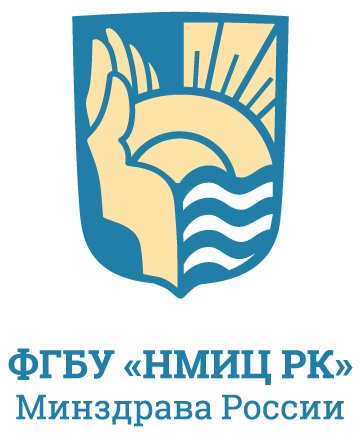Issue 4-98, 2020
Review article
Background to the Use of Plasmapheresis in Complex Therapy and Rehabilitation of Oncologic Patients
1 ![]() Gilmutdinova I.R., 1
Gilmutdinova I.R., 1 ![]() Eremin P.S.
Eremin P.S.
1 National Medical Research Center of Rehabilitation and Balneology, Moscow, Russian Federation
ABSTRACT
Introduction. Oncological diseases take the second place in the world in mortality rate after cardiovascular pathology. Thedevelopment of the tumor is accompanied by the appearance and accumulation of a number of pathological metabolites. Atthe same time, it is worth noting that the expansion of indications for the use of surgical methods of treatment, as well as anincrease in the range of medicated antitumor drugs, especially against the background of combination therapy, is still accompaniedby aggressive effects on the patient's body. Thus, the consequences of radiation and chemotherapy are quite significantand consist of the cumulation of cytotoxic drugs that are toxic not only for tumor cells, but also for other tissue structuresof the body. In this connection, intensive therapy of endogenous intoxication in case of tumor lesions is one of the complexinterdisciplinary problems, in which should participate surgeons, resuscitators, pathophysiologists, transfusiologists.Purpose. Analysis of literature data on the use of plasmapheresis as an effective component of rehabilitation measuresfrom the point of view of pathophysiology in cancer patients.Conclusion. Considering the possibility of using extracorporeal detoxification methods in the treatment andrehabilitation of cancer patients, it should be noted that, against the background of chemotherapy and/or radiationtherapy, plasmapheresis is one of the most common indications for use. Positive responses after plasmapheresis havebeen reported in patients with carcinoma of the lung, colon and breast. In addition, there are reports of the effectivenessof the method in patients with melanoma, head and neck tumors, lymphomas, leukemia and Kaposi’s sarcoma withacquired immunodeficiency. However, there is currently a limited number of studies aimed at the effectiveness of the useof extracorporeal detoxification in the complex treatment of cancer patients.
KEYWORDS: plasmapheresis, oncology, cancer rehabilitation
FOR CITATION: Gilmutdinova I.R., Eremin P.S. Background to the Use of Plasmapheresis in Complex therapy and Rehabilitation of Oncologic Patients. Bulletin of Rehabilitation Medicine. 2020; 4 (98): 131–134. https://doi.org/10.38025/2078-1962-2020-98-4-131-134
References:
- Bray F., Ferlay J., Soerjomataram I., Siegel R.L., Torre L.A., Jemal A. Global Cancer Statistics 2018: GLOBOCAN estimates of incidence and mortality worldwide for 36 cancers in 185 countries. CA: A Cancer Journal for Clinicians, in press. The online GLOBOCAN, 2018.
- Rampling M.W. Red cell aggregation and yield stress. In Clinical Blood Rheology; Lowe GDO, Ed., CRC Press, Inc.: Florida. 1988: 45-64.
- Baskurt O.K., Meiselman H.J. Erythrocyte aggregation: basic aspects and clinical importance. Clinical Hemorheology and Microcirculation. 2012; (53): 23-37.
- Malakhova M.Ya. Endogennaya intoksikatsiya kak otrazheniye kompensatornoy perestroyki obmennykh protsessov v organizme [Endogenous intoxication as a reflection of the compensatory restructuring of metabolic processes in the body]. Efferentnaya terapiya. 2000; (6-4): 3-14 (In Russ.).
- Gromova Ye.G. Ekstrakorporal'nyye metody detoksikatsii v komplekse intensivnoy terapii onkologicheskikh bol'nykh: Dokt.Diss [Extracorporeal methods of detoxification in the complex of intensive care of cancer patients. Doct... Diss.]. Moscow, 2004: 254 p. (In Russ.).
- Rozhkov A.G., Karandin V.I. Efferentnaya terapiya v khirurgicheskoy klinike [Efferent therapy in a surgical clinic]. Moscow: Miklosh. 2010: 256 p. (In Russ.).
- Voinov V.A., Kalinin N.N. Plazmaferez u onkologicheskikh bol'nykh na fone luchevoy terapii. Klinicheskoye primeneniye ekstrakorporal'nykh metodov lecheniya [Plasmapheresis in cancer patients with radiation therapy. The clinical use of extracorporeal treatments]. Moscow: Trekpor Tekhnolodzhi, 2009: 116-117 (In Russ.).
- Anisimova N.YU. Patogeneticheskoye obosnovaniye primeneniya ekstrakorporal'noy detoksikatsii u onkologicheskikh bol'nykh s sepsisom: Dokt.Diss [Pathogenetic rationale for the use of extracorporeal detoxification in cancer patients with sepsis. Doct. Diss.]: Moscow, 2013: 332 p. (In Russ).
- Roytberg G.Ye., Tyul’kina Ye.Ye., Dorosh Zh.V., Filatov R.Ye., Anikeyeva O.Yu. Organizatsiya mul’tidistsiplinarnoy reabilitatsii patsiyentov onkologicheskogo profilya [Organization of multidisciplinary rehabilitation of cancer patients.]. Bulletin of Rehabilitation Medicine. 2019; 5(93): 14-20 (In Russ.).
- Solopova A.G., Vlasina A.Yu., Idrisova L.E., Moskvichova V.S., Bazhanov S.A. Reabilitatsiya onkoginekologicheskikh bol’nykh: aktual’nyye problemy i vozmozhnyye resheniya [Rehabilitation of gynecological oncological patients: actual problems and possible solutions]. Bulletin of Rehabilitation Medicine. 2019; 5(93): 87-96 (In Russ.).
- Gigineyshvili G.R., Kotenko N.V., Lanberg O.A. Primeneniye art-psikhoterapii u zhenshchin posle mastektomii po povodu raka molochnoy zhelezy [The use of art psychotherapy in women after mastectomy for breast cancer]. Bulletin of Rehabilitation Medicin e. 2019; 6(94): 22-26 (In Russ.).
- Sidorov D.B., Grushina T.I. Effektivnost’ primeneniya preformirovannykh fizicheskikh faktorov i podkozhnoy khirurgicheskoy korrektsii v reabilitatsii bol’nykh rakom molochnoy zhelezy s pozdney limfedemoy verkhney konechnosti [The effectiveness of the use of preformed physical factors and subcutaneous surgical correction in the rehabilitation of patients with breast cancer with late lymphedema of the upper limb]Bulletin of Rehabilitation Medicine. 2019; 6(94): 39-44 (In Russ.).
- Yu X., Gan L., Wang Z., et al. Chemotherapy with or without plasmapheresis in acute renal failure due to multiple myeloma: a meta-analysis. International Journal of Clinical Pharmacology and Therapeutics. 2015; 53(5): 391-397.
- Premuzic V., Batinic J., Roncevic P., et al. Role of Plasmapheresis in the Management of Acute Kidney Injury in Patients With Multiple Myeloma: Should We Abandon It? Therapeutic Apheresis and Dialysis. 2018; 22(1): 79-86.
- Clark W.F., Garg A.X. Plasma exchange for myeloma kidney: cast(s) away. Kidney International. 2008; 73(11): 1211-1213. DOI: 10.1038/ki.2008.117
- Johnson W.J., Kyle R.A., Pineda A.A., O'Brien P.C., Holley K.E. Treatment of renal failure associated with multiple myeloma. Plasmapheresis, hemodialysis, and chemotherapy. Archives of Internal Medicine. 1990; 150(4): 863-869.

The content is available under the Creative Commons Attribution 4.0 License.
©
This is an open article under the CC BY 4.0 license. Published by the National Medical Research Center for Rehabilitation and Balneology.




